Dealing with bloating, edema, and water retention can be uncomfortable and frustrating.
Fortunately, nature offers us a variety of teas that can help alleviate bloating and promote fluid balance in the body!
Read on to explore some of the top teas known for their diuretic properties and ability to reduce edema and water retention.
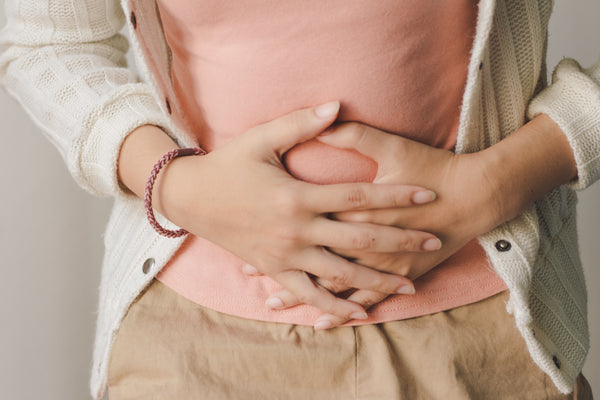
What is Edema and what causes it?
Edema, also known as water retention, is swelling caused by too much fluid in the body's tissues.
Too much fluid can get trapped in our tissue due to our body responding to external and internal forces like hot weather, too much salt, a reaction to a medication, or even hormones associated with the menstrual cycle and pregnancy. Mild cases of edema often go away on their own, but extreme cases should be taken seriously, and a doctor can help you identify the exact cause of the swelling.
Edema causes swelling and bloating, which is often concentrated in the legs and feet but can also appear in the face, belly, and hands. Swelling can be uncomfortable and affect daily life.
The swelling from edema can cause:
-
Swollen & itchy skin
-
Difficulty walking
-
Tightness in the swollen body part
-
Mild pain in the swollen body part
-
Coughing or trouble breathing
Whether it's caused by hormonal changes, dietary factors, or other health conditions, finding relief is essential.
Treatment for edema depends on the root cause, but for mild cases, there are a few natural remedies, like tea, that can make a big difference in the swelling and bloat associated with edema and water retention.
What are herbal diuretics?
Drinking tea is one of the best herbal remedies for bloat and water retention.
You might be thinking: ‘But I thought edema was caused by too much fluid in the body; how is drinking more fluid going to help?’ The key to answering your question lies in the diuretic properties of some herbal teas.
Diuretics help our bodies get rid of salt and water by transferring the excess salt and fluid from our cells and tissues into our kidneys and out of our bodies through urine. Diuretics cause us to pee more often, and that pee flushes the body clear of the fluid and salt that may be causing our edema.
While diuretic pills do exist, some plants, roots and herbal supplements naturally contain diuretics and are great for fighting water retention and improving our overall health.
Best herbal diuretic teas
1. Dandelion Tea
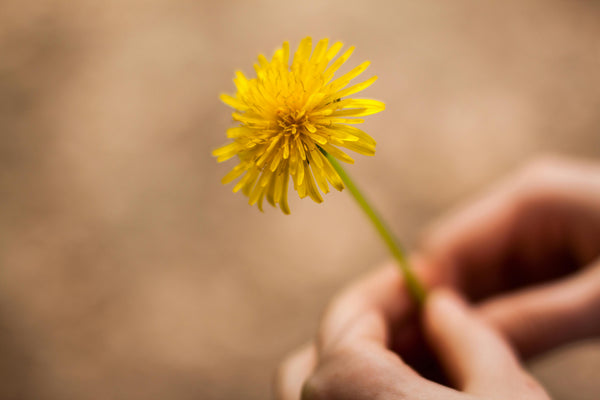
Dandelion tea is a great choice for combating bloating and water retention.
It acts as a natural diuretic, helping the body eliminate excess fluid by increasing urine production. Dandelion tea also contains potassium, which helps regulate fluid balance and prevent electrolyte imbalance. Studies show that dandelion extract may significantly increase urine output, making it an effective remedy for edema and water retention.
Dandelion tea can also help reduce glucose and cholesterol levels, is anti-inflammatory, and can significantly reduce oxidative stress in the liver.
If dandelions grow near you, you can easily make dandelion tea at home for free! Just collect the flowers—including the stems and roots—rinse them to get rid of any excess dirt or bugs, and steep them in hot water for 30 minutes. You can then strain the dandelion out of your tea or leave it in and drink it.
Make sure the area you collect the dandelions from is free from yard pesticides or fertilizers as those could cause sickness.
2. Green Tea
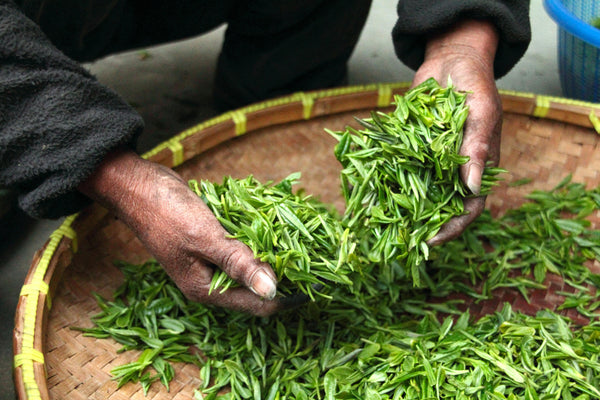
Green tea is world renowned for its numerous health benefits, including its ability to reduce bloating and promote weight loss.
It contains catechins, antioxidants that have been scientifically proven to boost metabolism and increase fat burning. Green tea also has diuretic properties, which can help reduce fluid retention and bloating.
Green tea is a great source of caffeine that won’t give you the coffee jitters, promotes overall health and wellness, can prevent cancer, improve your skin, fight diabetes, improve your sleep, help you live longer and, among other amazing benefits, fight bloating.
Matcha is our favorite source of green tea because of its high levels of antioxidants and delicious taste. High-grade matcha has a unique umami flavor. You can drink matcha the traditional way or make it into a variety of foods and drinks like a matcha latte, matcha smoothie, or even a matcha cupcake!
3. Peppermint Tea
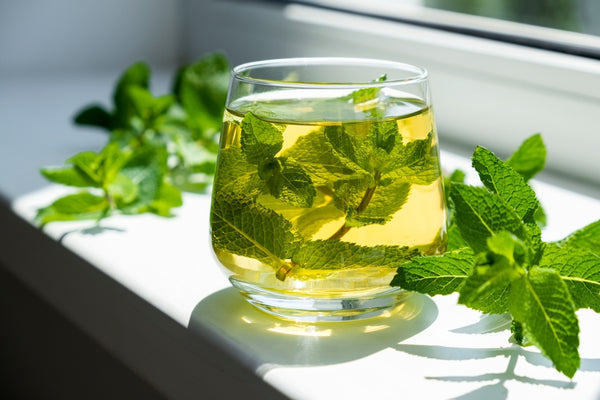
Peppermint tea is not only refreshing but also excellent for alleviating bloating and digestive discomfort.
Peppermint tea contains menthol, which has a calming effect on the digestive tract, reducing gas and bloating. Peppermint tea also acts as a mild diuretic, promoting the elimination of excess fluid from the body.
Studies show that peppermint oil, a key component of peppermint tea, significantly reduced symptoms of irritable bowel syndrome, including bloating and abdominal pain. Peppermint tea also has antiviral and antibacterial properties, making it great for your GI and respiratory tracts.
Peppermint tea doesn't contain any caffeine which makes it great for drinking at any time of day including at bedtime.
4. Nettle Tea
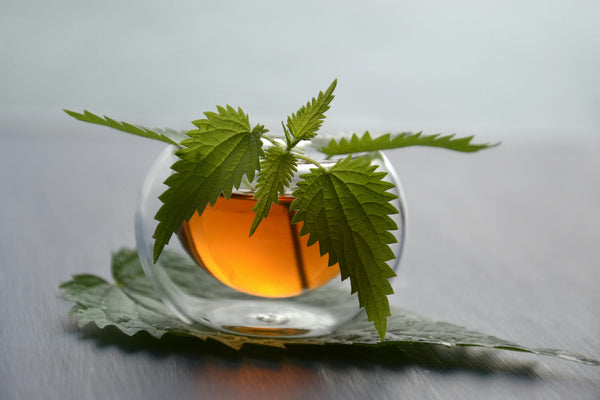
Nettle tea is an herbal remedy that has been used for centuries to treat various health conditions, including edema and water retention.
Nettle tea contains compounds called flavonoids, which have diuretic properties and help increase urine output. Nettle tea also acts as a natural anti-inflammatory, reducing swelling and fluid retention in the body.
Nettle leaves are often used to treat arthritis. Nettle has antioxidant and antiulcer effects and can be used to prevent cardiovascular disease.
Collecting nettle can be challenging. The nettle plant is covered in tiny hairs that, if touched, cause a stinging and itching sensation. While you can harvest nettle yourself, the easiest way to consume nettle tea is to buy it from a reputable, organic tea leaf source.
5. Hibiscus Tea
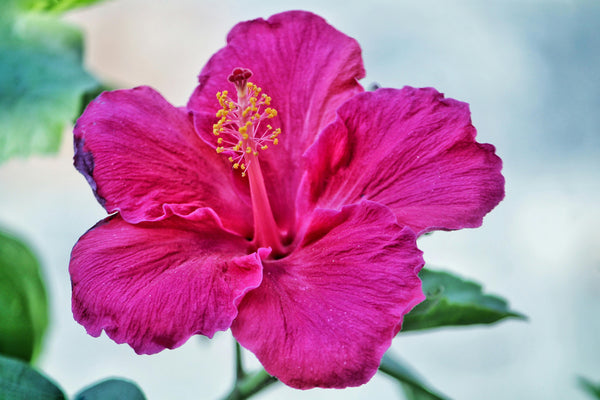
Hibiscus is native to India and Malaysia but is grown and cultivated in tropical regions all over the world. The color pigments in Hibiscus leaves are used in cosmetics and natural food coloring.
Hibiscus tea has been used to treat ailments for centuries and is not only delicious but also beneficial for reducing bloating and fluid retention. It is rich in antioxidants and anthocyanins, which have diuretic properties and help promote kidney function.
Hibiscus tea also contains vitamin C, which supports collagen production and strengthens blood vessels, reducing the risk of edema. Studies show that hibiscus extract supplementation significantly reduces body weight, body fat, and fluid retention in obese individuals.
There are so many ways to consume hibiscus tea. Try a few and find your favorite!
Bottom line
Battling bloating, edema, and water retention can be challenging, but incorporating herbal teas into your daily routine can help alleviate symptoms and promote overall health.
Whether you prefer dandelion, green, peppermint, nettle, or hibiscus tea, each offers unique benefits for reducing fluid retention and bloating.
Disclaimer: These statements in this blog post have not been evaluated by the Food and Drug Administration. The information provided here is for educational purposes only and should not be considered medical advice. It's essential to consult with a qualified healthcare professional before making any dietary or lifestyle changes.
Resources:
Clare, B. A., Conroy, R. S., & Spelman, K. (2009). The diuretic effect in human subjects of an extract of Taraxacum officinale folium over a single day. Journal of alternative and complementary medicine (New York, N.Y.), 15(8), 929–934. https://doi.org/10.1089/acm.2008.0152
Wirngo, F. E., Lambert, M. N., & Jeppesen, P. B. (2016). The Physiological Effects of Dandelion (Taraxacum Officinale) in Type 2 Diabetes. The review of diabetic studies : RDS, 13(2-3), 113–131. https://doi.org/10.1900/RDS.2016.13.113
Ohishi, T., Goto, S., Monira, P., Isemura, M., & Nakamura, Y. (2016). Anti-inflammatory Action of Green Tea. Anti-inflammatory & anti-allergy agents in medicinal chemistry, 15(2), 74–90. https://doi.org/10.2174/1871523015666160915154443
McKay, D. L., & Blumberg, J. B. (2006). A review of the bioactivity and potential health benefits of peppermint tea (Mentha piperita L.). Phytotherapy research : PTR, 20(8), 619–633. https://doi.org/10.1002/ptr.1936
Bhusal, K. K., Magar, S. K., Thapa, R., Lamsal, A., Bhandari, S., Maharjan, R., Shrestha, S., & Shrestha, J. (2022). Nutritional and pharmacological importance of stinging nettle (Urtica dioica L.): A review. Heliyon, 8(6), e09717. https://doi.org/10.1016/j.heliyon.2022.e09717
Montalvo-González, E., Villagrán, Z., González-Torres, S., Iñiguez-Muñoz, L. E., Isiordia-Espinoza, M. A., Ruvalcaba-Gómez, J. M., Arteaga-Garibay, R. I., Acosta, J. L., González-Silva, N., & Anaya-Esparza, L. M. (2022). Physiological Effects and Human Health Benefits of Hibiscus sabdariffa: A Review of Clinical Trials. Pharmaceuticals (Basel, Switzerland), 15(4), 464. https://doi.org/10.3390/ph15040464
Cleveland Clinic. (2018). Edema: Causes, symptoms & treatment. Cleveland Clinic. https://my.clevelandclinic.org/health/diseases/12564-edema
Cleveland Clinic. (2021, October 1). Diuretics: Types, uses and side effects. Cleveland Clinic. https://my.clevelandclinic.org/health/treatments/21826-diuretics






